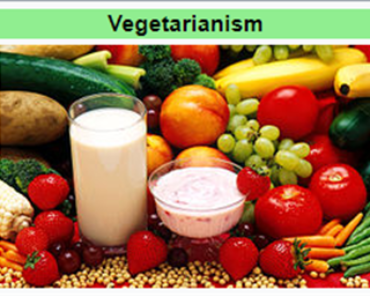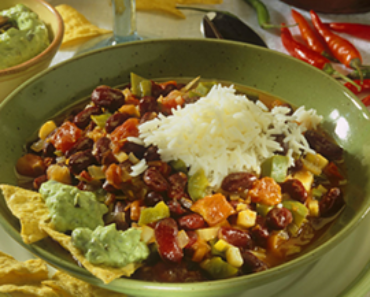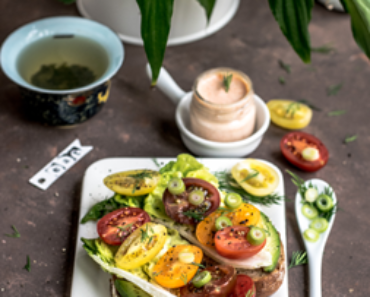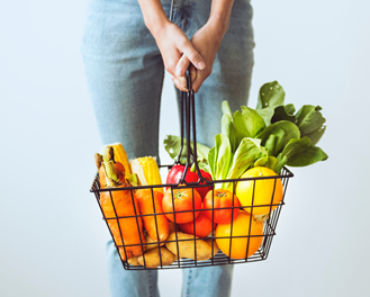Vegan? To Be or Not To Be?
Why Choose To Be A Vegan
Vegan? To be or not to be? Why do we make the choices in life that we do? As humans, we have that privilege but we use it so often, it has almost become second nature. Why we choose to do what we do can be a huge question. Even bigger, arguably, is why do some of us keep going back to repeat behaviors that are clearly damaging to us, to others, both human and non-human, and to the planet?
Every day, we make thousands and thousands of decisions. Some of them are so imperceptible we don’t even know that we’re doing them. Red socks today? Sure. Watch the game tonight? Maybe. Clear out the crammed medicine cabinet tonight? Meh, maybe another day. Take up a vegetarian diet? A vegan diet? Do what now? Just give me a minute and say that again…
Ever stopped to think that the medicine cabinet got that way crammed through meat consumption and the pharmaceutical industry’s hold on us by offering more and more expensive cures for conditions we can eliminate or reduce with a plant-based, natural, healthy diet?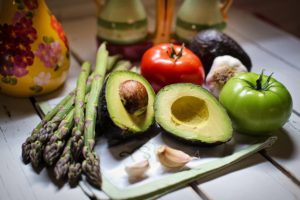
Some decisions we need to make are way more profound with far-reaching repercussions that can change, improve or even save health and lives. One of the those is diet.
We always like to think that we’re smart and that we’re doing the right thing for the right reasons. So, by choosing to go vegetarian, or vegan, one is not only making a decision to better one’s health, lose weight and potentially live years longer, but also to protect lives, that’s innocent lives, of other living beings. A graveyard for a stomach is, well, just a stomach-turning thought if you really think about it.
Do You Know What You Are Eating
Our diets have such a huge impact on our health. It may be cliche, but you are what you eat has never been truer. And who wants to be made up of the sum of pain, misery and cruelty that the whole animal agriculture industry is built upon?
It never ceases to amaze when meat-eaters wrinkle their nose at the idea of tofu, for example, and ask “how can you eat that?” Yet a processed hot dog or chicken nugget can contain a plethora of unsavory “items.” Blood, tumors, gristle, hair and a host of other things that you really don’t want to ponder on for too long. So how can you eat THAT?
And let’s not overlook that animal agriculture is responsible for the introduction of ever more potent antibiotics into their livestock. In an average year, the US meat industry uses approximately 100,00- tons of antibiotics to try and keep their animal victims healthy when keeping them in squalid, cramped and disease-ridden venues.
So, when you see an advert for “delicious prime rib”, chances are that you’re chowing down on some weapons grade antibiotics too.
As if the health argument wasn’t incentive enough, you get to choose a more ethical, compassionate life and help out our long-suffering planet too.
A vegetarian diet or a vegan diet has an incredibly beneficial impact on the environment. A dizzying amount of resources are ploughed into animal agriculture and the meat industry. Not only through sheer space and resource consumption, but also through pollution. To put it bluntly, livestock let out a lot of gas and that contributes to global warming
The greenhouse gases caused by the animal agriculture industry actually contribute more so to the world’s lungs getting clogged up than all of global transportation put together. Just let that sink in for a minute or two.
The psychology of cognitive dissonance starts to come into play with the brutal reality of just what meat-eating entails and how vegetarians or vegans choose to overcome that (cognitive dissonance, for those not in the know, is a dilemma of the mind consisting of conflicting ideas or thoughts.)
Humanity, or at least the greater part of it, has a big-style addiction problem when it comes to the exploitation of non-human animals.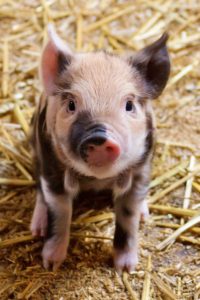 And there’s no way to sugar-coat that exploitation – it’s blood-stained, inherently cruel and has been going on seemingly for ever which is never a good argument for anything (“But we’ve always done it this way” is a dangerous mentality that would allow for slavery or female disenfranchisement to have continued unfettered.) That addiction is built on an horrific disconnect in the relationship between humans, what they by and large say about animals and how they treat them in reality.
And there’s no way to sugar-coat that exploitation – it’s blood-stained, inherently cruel and has been going on seemingly for ever which is never a good argument for anything (“But we’ve always done it this way” is a dangerous mentality that would allow for slavery or female disenfranchisement to have continued unfettered.) That addiction is built on an horrific disconnect in the relationship between humans, what they by and large say about animals and how they treat them in reality.
To expand on that, if you passed a beautiful meadow in Spring time and saw a lunatic attacking a young calf with a hammer, the chances are you would want to do something about that – intervene, call the cops or generally let your outrage be known.
Why? Because that sense of outrage is so real. Yet multiply that a thousand-fold in just an hour or so, as you read this, as is happening right now behind the closed doors of a countless slaughterhouses all around the globe, and the outrage is largely mysteriously absent.
That disconnect is all too apparent when meat-eaters refer to themselves as “animal lovers.” Really? So, if I was a baby-sitter that advertised my services as “love kids – I only eat them two or three times a week. Humanely killed of course” – I don’t think I’d be inundated with the ‘phone going crazy with people asking for my services.
“Humanely killed” is a poor attempt by apologists for the continued misery that humanity inflicts upon it’s innocent, long-suffering animal neighbors. It’s simply a re-branding of slaughter. There’s no more such as thing as “humane killing” than there is “humane assault” or “humane genocide.”
Show me a vegetarian or vegan fan of bull-fighting or fox-hunting, and I’ll show you cognitive dissonance writ large. Living in denial is a particularly sorry and self-destruct trait that many humans readily engage in.
You Can’t Deny The Science
Ever more research is establishing the health benefits of a plant-based diet as opposed to the significant health risks that come with meat consumption.
For example, in 2015, the World Health Organization identified what many of us had suspected – that processed meat, ham and bacon are potentially carcinogenic. Now that’s just something that you don’t hear in the same breath when talking about tempeh, tofu, fruit and vegetables.
Of course, there are those that don’t accept this growing evidence about the harmful effects of meat consumption. Well, the same doubts about smoking related risks were also emerging back in the 1960s when the first news about the dangers of tobacco came out. Given enough time and they diminished. The same will be true o eating meat – as the evidence grow, it just needs time.
Type 2 diabetes, cancer, heart disease, higher cholesterol and stroke –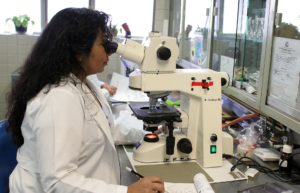 just some the little delights that regular meat consumption can hold in store for the unlucky consumer in years to come. Animal products are jam packed with cholesterol and saturated fats, both of which are prime suspects in people developing diabetes, heart disease or weight problems in general.
just some the little delights that regular meat consumption can hold in store for the unlucky consumer in years to come. Animal products are jam packed with cholesterol and saturated fats, both of which are prime suspects in people developing diabetes, heart disease or weight problems in general.
Need further encouragement? Well, draw the curtains, dust off that Netflix subscription and take a good long look at the movie Forks Over Knives. That a powerful, powerful visual that reinforces how a plant-based diet is far superior to an animal-based diet in helping to fight off and overcome life-threatening conditions like heart disease, cancer or diabetes.
Or check out the equally as thought-provoking movie Fat, Sick and Nearly Dead to see how the plant-based food (in this case juices – a lot of juices) can dramatically turn someone’s health around from dangerous levels of obesity to regaining full health and stamina.
A plant-based diet is more than able to offer a vegetarian or vegan a wholesome, well-balanced diet that provides for all necessary nutrients, vitamins and protein.
Which ever way you look at it, thankfully, plant-based diets, both vegan and vegetarian, are on the rise around the world. There is still a long way to go, but the life-signs are looking good.
So not only is that better for your health, better for the animals, better for the planet and a poke in the eye for the multi-national corporations that make billions from the animal agriculture industry, plus the pharmaceuticals who coin it in from trying to cure those suffering from, you’ve guessed it, animal consumption related diseases.
In this day and age, with the raised awareness and the range of vegan / vegetarian food choices to be found, there really is no excuse for persisting with a potentially deadly meat addiction.
You also don’t have to indulge in the kind of moral shape-shifting that sees meat-eaters coo over the baby piglet at the petting farm and then drool over the pork chop later that day.
It’s back to those decisions we make in the final analysis. There is a veritable vegan mountain of information out there about the cruelty and misery that animal exploitation creates, how detrimental meat consumption is to human health and how perilous this all is to the environment that we all share.
Those are three incredibly potent reasons as to why opting for a plant-based diet is one of the biggest, and best decisions that you can ever make. For you, your health, then animals and the planet.
The quote remains unsourced, I believe, but is time honored:
“The definition of insanity is keep doing the same thing but expecting different results.”
So very true when it comes to diet.
